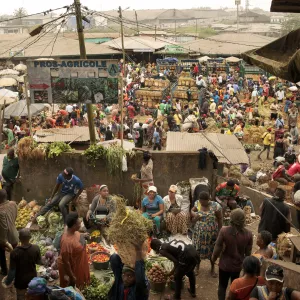Launch of the food systems governance e-course
Why does a food systems approach matter? Approximately 100 participants from Bangladesh, Ethiopia, and Viet Nam will be learning together to find the answer to that question and more through a recently launched e-course on Food Systems Governance, offered by the CGIAR Research Initiative on Sustainable Healthy Diets through Food Systems Transformation (SHiFT). The online course is made up of

Launch of the food systems governance e-course
Why does a food systems approach matter? Approximately 100 participants from Bangladesh, Ethiopia, and Viet Nam will be learning together to find the answer to that question and more through a recently launched e-course on Food Systems Governance, offered by the CGIAR Research Initiative on Sustainable Healthy Diets through Food Systems Transformation (SHiFT).
The online course is made up of four different modules that include videos, articles and practical cases with thought provoking and reflective questions to stimulate the learner to implement food systems thinking in their own context. Besides the learning modules there is a Network Café to further promote and facilitate interaction, networking and peer-to-peer learning. The online learning platform uses gamification to stimulate learning and engagement by rewarding progress and interaction in the course. Besides the online learning platform, there is a live plenary session each week led by an expert guest speaker to further engage the participants.
The first cohort was identified by SHiFT’s partners in its three target countries and participation was by invitation only. In the future, the online course will be offered to more participants.
The course was developed by a team of SHiFT researchers from Wageningen University and Research (WUR). To date, more than 1000 participants around the world have completed the Food Systems Governance e-course. Each time the course is offered it is adapted and tailored to its target audience with the most recent food system resources and examples from their contexts.
Header image: An entrance to Sandaga market, a busy wholesale market where merchants sell produce to be taken and sold in smaller local markets, corner stands and shops around Douala, Cameroon. The market women who do this are known as “Bayam-Selam” (buy ’em, sell ’em) and are crucial to the economy and food security of the city. Photo by Ryan Brown/UN Women from Flickr.

